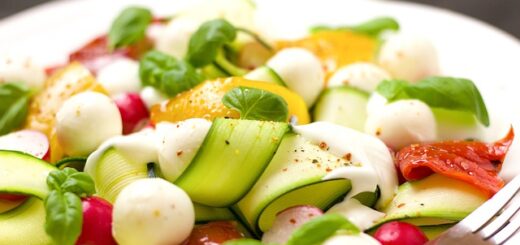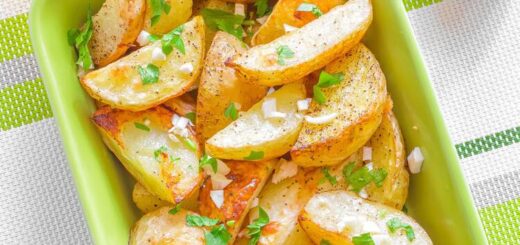Is melon healthy or unhealthy?

Find out how healthy melon is, why it’s so good for you and which variety wins the health trophy in our in-depth analysis of this juicy fruit!
First introduce yourself
To get straight to the point: melon is healthy. You probably have that in your pocket. Before we look at why this is the case and whether there are any possible disadvantages to this summer fruit, we will first briefly discuss what exactly it is.
Melons belong to the Cucurbitaceae family and are related to pumpkin and cucumber. Officially, this sweet and fleshy fruit does not belong to the fruit species, but to the vegetable species.
Because the fruits are more similar to fruit in terms of nutrients and sugar, a piece of melon counts as a daily portion of fruit and not as a vegetable. To make matters even more confusing, the melon is botanically a type of berry.
There are more than 70 different types. In the Netherlands, the watermelon, cantaloupe and Galia melon are the best known. You can read later in this article which of these types is the healthiest. First we will discuss why the melon is healthy (or perhaps a bit unhealthy?).
RESUME
Melon is officially not a fruit but a vegetable. Because it is more similar to fruit in terms of nutrients, it does count as a portion of fruit.
Why is melon healthy (or not)?
The key question of this article is of course whether melon is healthy (or unhealthy). Because the popular ‘fruit’ usually contains quite a bit of sugar, the fruit has not had such a healthy image for a long time.
However, melons also contain fiber, so the fruit sugars do not cause such a high spike in blood sugar levels. The fibers ensure that your blood sugar level rises less quickly.
In addition, the fibers (and fluid) give a feeling of satiety and promote good digestion. Eating melon and losing weight can therefore very well go hand in hand.
Melons contain relatively few calories and many vitamins, minerals and antioxidants. These are substances that protect your cells against free radicals. These are harmful substances from outside.
In addition, they consist largely of water. Even though they contain sugar, they fit into a healthy diet. This is also evident when we look at the possible health benefits.
Good for the heart and blood vessels
Melons contain potassium. This mineral is known to contribute to healthy blood pressure. High blood pressure is a risk factor for the development of cardiovascular disease.
For healthy bones
Your bones would also benefit from regularly eating a piece of melon. The fruit vegetable contains calcium, but also magnesium, folic acid and vitamin K. These substances play a role in maintaining strong bones. Vitamin K is also said to play a role in the normal functioning of the heart and blood vessels.
Good for the skin and eyes
Melons are generally a good source of vitamin C and beta-carotene. The latter is converted in your body into vitamin A. Both vitamins contribute to healthy skin. Beta-carotene is also good for the eyes. We know that vitamin C is necessary for the production of collagen. This protein gives your skin structure and firmness. In addition, vitamin C contributes to the correct functioning of your immune system and therefore good resistance.
RESUME
In general, we can say that melons can have a beneficial effect on your health due to their vitamins and minerals. In addition, they contain many antioxidants. These are substances that protect your body against damage caused by free radicals.
Which melon is the healthiest?
Now that we know that the melon is healthy, we ask ourselves: which melon is best for you? We take a closer look at the most popular melon varieties.
Watermelon
The watermelon is the most popular melon worldwide. But is it also good for you? This green winner particularly excels when it comes to the amount of fiber. But the substance that makes its flesh so beautifully red should also be very healthy.
Because there is much more to say about this beloved and summer favorite (for example, that it may have the same effect as Viagra), we have dedicated a separate article to this fruit. Knowing more? Then read on here and discover why watermelon is healthy.
Galia melon
This popular melon is a kind of cross between a cantaloupe and a honeydew melon. When it comes to the amount of calcium and magnesium, the Galia melon is the ‘winner’. So you can say that Galia melon is healthy.
Galia melons fall under the so-called net melons. You can recognize this species by a cork-like pattern on the skin (a kind of net). The juicy and sweet Galia melon has light green flesh and contains more flesh than other melon varieties.
We are sometimes asked whether galia melon is healthy when you are pregnant. Fruit (in moderation) is always a good idea. We think the question has to do with the fact that most melons are rich in folic acid. This is good for your unborn child. Sufficient folic acid during pregnancy and when wanting to have children reduces the risk of abnormalities.
If you eat them for the folic acid, you are better off taking the cantaloupe. It contains the most folic acid of all popular types.
It is important not to eat too much fruit when you are pregnant. If you consume too much sugar you have a greater risk of gestational diabetes. This can cause several negative consequences, such as an oversized baby.
Cantaloupe (European) melon
The cantaloupe is also called sweet melon, musk melon or rock melon. Cool names, but is the cantaloupe melon healthy? Well quite. This sweet and aromatic melon stands out due to its orange flesh and the amount of beta-carotene it contains. Namely so much that it makes oranges, peaches, mangoes and grapefruit, among others, pale.
A bowl of cantaloupe melon contains no less than 30% of the recommended daily amount of vitamin A. The same bowl also contains more than half of the daily recommended amount of vitamin C.
Honeydew melon
The honeydew melon is also known as yellow melon or honeydew melon. The skin is smooth and the flesh is yellow in color. The fresh melon contains a lot of phosphorus and potassium. Both are so-called electrolytes.
These are important salts in the body. They play a role in nerve and muscle function and the fluid balance in your body. Sports drinks are often supplemented with electrolytes, so that you can replenish important minerals after a workout. But a piece of honeydew melon after exercise is just as healthy! Moreover, you usually only need these drinks if you participate in top sports. Otherwise, drinking water is sufficient!
Other melon varieties also contain electrolytes. If you scroll down a little further, you will get a handy overview of the nutritional value of different types.
This fruit, which resembles a yellow rugby ball, also contains the most vitamin B6 of all the varieties discussed here. B6 is important for the proper functioning of your brain. We cannot produce vitamin B6 ourselves and are therefore dependent on our diet.
Piel de sapo
Honestly? We think piel de sapo sounds quite interesting and do our best not to make silly jokes about it. The piel de sapo melon deserves better.
The name literally means toad skin in Spanish (where this species comes from). This is due to the knobby, green skin that this species has. The flesh is white and very sweet.
The piel de sapo is also healthy. It contains quite a bit of vitamins A and C and various minerals.
Dino melon
Another nice name. This white-striped melon is becoming increasingly popular. Officially it’s called white honey dew melon (in England they call it snowball melon). The fruit resembles a dinosaur egg, hence its name. Contrary to what you might think, this strain is not a hybrid, but a standalone strain.
This ‘egg look alike’ is slightly less sweet in taste. In terms of nutritional value, we could not find any striking outliers, but the dinosaur melon is certainly healthy too.
The healthiest melon: take it personal
As you can see, every melon variety we have described has something it excels at. Which melon is the healthiest also depends a bit on what you specifically need.
For example, the cantaloupe contains the most folic acid, vitamin A, vitamin C and the most fiber (1.1 grams per 125 grams) of all the types we discussed. The yellow melon again excels in potassium, phosphorus and vitamin B6, while the galia melon contains more magnesium and calcium.
RESUME
What is the healthiest melon is personal for everyone. Almost every species has something unique. For example, the cantaloupe contains the most folic acid, vitamin C and vitamin A. While the honey dew contains more potassium and phosphorus.
Melon nutritional value – a handy overview
To make it easier to choose the healthiest melon, we put the nutritional value of these melons (per 125 gram bowl) in a handy overview.
Because melon contains no fat and only a negligible amount of salt, we have omitted it for convenience. The fruit vegetable also does not contain much protein, the honeydew melon has the most with 1.1 grams of protein per 100 grams.
| Kind | Kcal | Carbohydrates (g) | Potassium (mg) | Calcium (mg) | Magnesium (mg) |
| Watermelon | 45 | 10 | 198 | 13 | 10 |
| Galia melon | 34 | 7.5 | 250 | 19 | 25 |
| Cantaloupe | 48 | 9.9 | 334 | 11 | 15 |
| Honeydew melon | 38 | 7.9 | 438 | 16 | 14 |
| Piel de sapo | 41 | 8.8 | 305 | 15 | 16 |
| Dino melon | 41 | 8.8 | 305 | 15 | 16 |
| Kind | Vitamin A (µg) | Iron (mg) | Vitamin C (mg) | Vitamin B6 (mg) |
| Watermelon | 28 | 0.5 | 8 | 0.09 |
| Galia melon | 5 | 1 | 15 | 0.08 |
| Cantaloupe | 211 | 0.3 | 46 | 0.09 |
| Honeydew melon | 5 | 0.8 | 40 | 0.13 |
| Piel de sapo | 63 | 0.6 | 28 | 0.1 |
| Dino melon | 63 | 0.6 | 28 | 0.1 |
| Kind | Folic acid (µg) | Phosphorus (mg) | Iodine (µg) | Fiber (g) |
| Watermelon | 3 | 14 | 0 | 0.8 |
| Galia melon | 4 | 13 | 0 | 0.5 |
| Cantaloupe | 26 | 19 | 5 | 1.1 |
| Honeydew melon | 3 | 26 | 0 | 0.8 |
| Piel de sapo | 9 | 18 | 1 | 0.8 |
| Dino melon | 9 | 18 | 1 | 0.8 |
How much melon can you eat per day?
Melon is healthy, but because it contains quite a lot of fruit sugar, it is smart not to overdo it. Melon and losing weight go well together, but if you consume too much fruit sugar, this can hinder weight loss. That’s why we’re such fans of the low-carb diet .
That is why we recommend sticking to one portion per day of melons (no matter how healthy). This amounts to approximately 150 grams (a bowl is approximately 125 grams).
Melon healthy or unhealthy, conclusion
It is clear that melons are healthy. The wide variety makes it a delicious way to get a daily portion of fruit. The vitamins and minerals they contain make them part of a conscious lifestyle.











